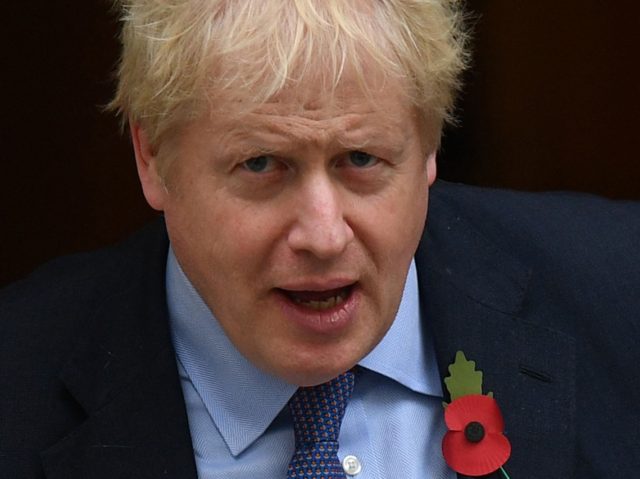The United Kingdom is in day one of a short, 43-day snap general election campaign and while the first polls published give Boris Johnson’s Conservatives a leading position, the figures may not be enough to reshape Parliament for Brexit.
A Yougov poll published Tuesday as the election was confirmed put the governing Conservatives on 36 per cent, 13 points clear of Labour who languished behind on 23. A separate poll the same day by Opinium painted a brighter picture with the Tories on 40, a 16 point lead.
While the results of these polls were published after it was finally revealed the United Kingdom would be having an election in six weeks, the actual fieldwork took place last week when the Prime Minister appeared to be trapped by parliament and increasingly impotent with a Brexit delay forced on him and no apparent means of escape.
With Labour reportedly now willing to back a general election, it looks like we're set for an election in December. Our most recent voting intention poll had the parties on:
Con – 36%
Lab – 23%
Lib Dem – 18%
Brexit Party – 12%
Green – 6%
Other – 6%https://t.co/fDENF0Br2z pic.twitter.com/KmabY20eIR— YouGov (@YouGov) October 29, 2019
Although that Brexit delay has now been confirmed — a major breach of promise for the Prime Minister which previous research suggests serious damage to Johnson’s electoral prospects — the fact the election is now going ahead and a route out of the parliamentary Brexit roadblock has become evident could provide a lift to Mr Johnson in the polls in the coming days.
While the latest figures suggest a head start for Boris Johnson’s Conservatives as the starting gun was fired on the first British winter election since the 1970s, Tory strategists will likely not be celebrating the numbers yet. Even taking the more optimistic of the figures from Opinion with the Conservatives at 40 per cent of the popular vote, this is still short of the 43.5 per cent achieved by Theresa May in her disastrous 2017 snap election, the minority government results of which dictated the following years of Brexit stagnation and pro-EU activism from parliament.
Despite both Theresa May’s achieved percentage and the present polling for Boris Johnson being higher than David Cameron’s surprise victory in 2015 with 37 per cent of the vote, it is the distribution of votes into key strategic seats that decides the outcome of the election, not raw number of votes.
Coming a close second in dozens of seats deprived Theresa May of her majority in that election, and a similar fate may await Boris Johnson, especially if he doesn’t reach an accommodation with the Brexit Party which presently promises to stand candidates against all Conservative seats, potentially splitting the pro-Brexit vote.
Our latest Opinium/Observer:
CON: 40% (+3)
LAB: 24% (-)
LDEM: 15% (-1)
BREX: 10% (-2)23 – 25 Oct
Chgs. w/ 17 Oct— Opinium (@OpiniumResearch) October 29, 2019
Brexit Party leader Nigel Farage has persistently called on Mr Johnson to enter into an electoral pact where both parties can concentrate their fire on the regions of the country where they perform best, not standing against each other.
One form of this would see the Brexit Party standing candidates in the north, midlands, and Wales in Labour heartlands where voters support Brexit and feel abandoned by the London-centric party machine of Islington-based leader Jeremy Corbyn. Meanwhile, the Conservatives would concentrate on the South and Scotland.
If the strategy worked — and Mr Farage has boasted that together the two parties could win a landslide and create a pro-Brexit parliament to deliver the promise of the 2016 referendum — the outcome would inevitably mean a coalition government, although Mr Farage himself has insisted he does not personally want a government job and would support the administration from the backbenches.
The Conservatives have so far rejected the prospect of any sort of accommodation with the Brexit party with contempt.
Despite the government’s failure to deliver Brexit by October 31st as repeatedly promised by the Prime Minister, separate polling figures show Conservatives are the most optimistic party when it comes to their electoral prospects. Confidence among party members that they will win an election has soared from 50 to 73 per cent since July, while the faith of Labour, Liberal Democrat, and Brexit voters has fallen.
Delingpole: Turkeys In Lame-Duck Parliament Vote For Christmas; General Election Finally On https://t.co/GWdXfmT5l3
— Breitbart London (@BreitbartLondon) October 30, 2019

COMMENTS
Please let us know if you're having issues with commenting.